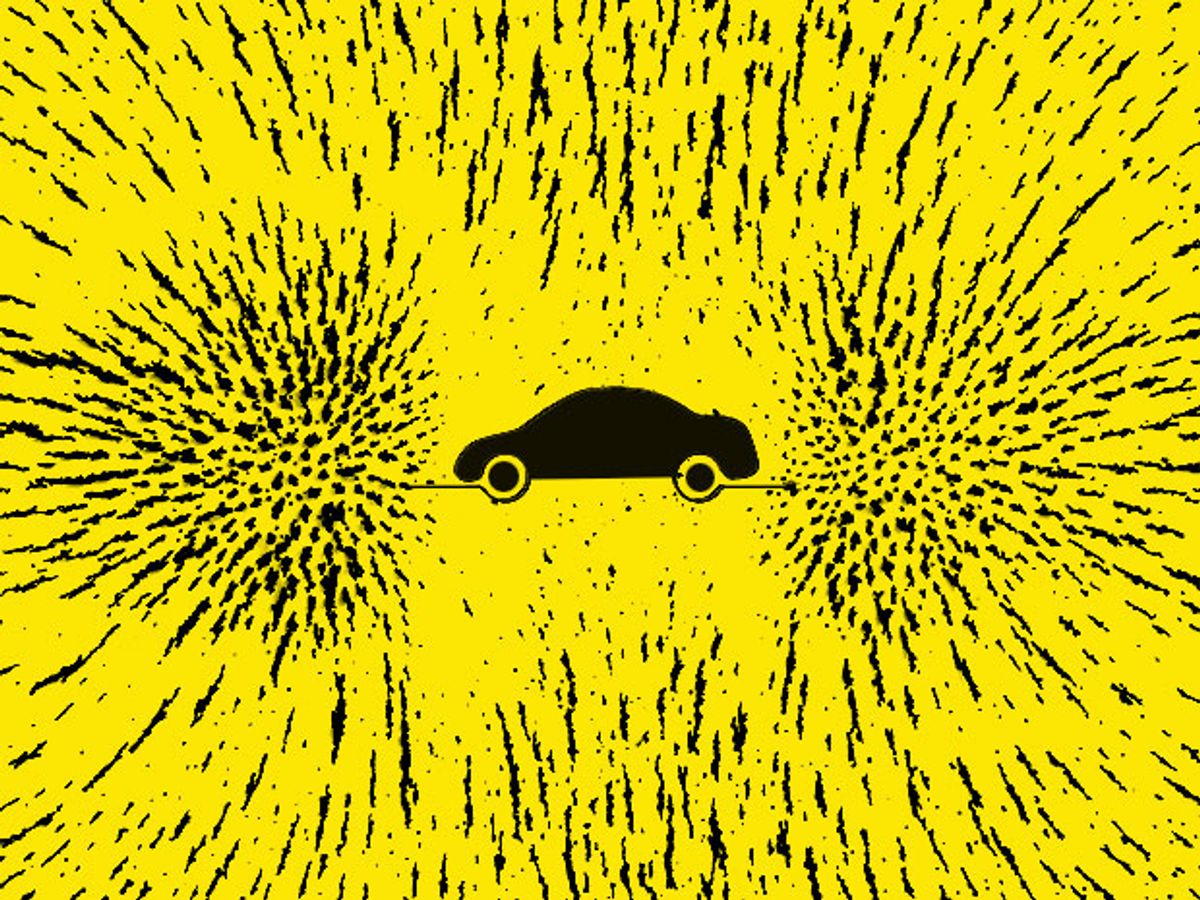When hybrid and electric cars first hit the road, a small group of skeptics worried about the unknown dangers of electromagnetic fields that might affect drivers and passengers. Now a seven-country study has found that the magnetic fields in electric vehicles pose no danger whatsoever at a time when electric car ownership continues to rise.
The study, led by SINTEF, an independent research organization headquartered in Trondheim, Norway, measured the electromagnetic radiation—in the lab and during road tests—of seven different electric cars, one hydrogen-powered car, two gasoline-fueled cars and one diesel-fueled car. Results from all conditions showed that the exposure was less than 20 percent of the limit recommended by the International Commission on Non-Ionizing Radiation Protection (ICNIRP).
"There is absolutely no cause for concern," says Kari Schjolberg-Henriksen, a physicist at SINTEF, in a press release. "The difference between this research and similar earlier work is that we have taken into account what contributes to the magnetic fields. The rotation of the wheels themselves generates considerable magnetic fields, irrespective of vehicle type."
Measurements taken inside the vehicles—using a test dummy with sensors located in the head, chest and feet—showed exposure at less than 2 percent of the non-ionizing radiation limit at head-height. The highest electromagnetic field readings—still less than 20 percent of the limit—were found near the floor of the electric cars, close to the battery. Sensors picked up a burst of radiation that same level, when the cars were started.
This may seem like a non-issue for most drivers, but worries about the possible dangers of magnetic fields in hybrid and electric vehicles had already started to flourish on Internet forums as early as 2008. The New York Times ran an article titled, "Fear, but Few Facts, on Hybrid Risk" that noted how hybrid car drivers were using their own detectors to take magnetic field readings. A search of the online forums hosted by Tesla Motors—Elon Musk's electric car company—also shows a small number of electric car owners asking about the possible dangers of magnetic fields over time.
Yet recent studies such as the SINTEF project seem to confirm the lack of danger. The venerable Consumer Reports conducted a "myth-buster" study in 2010 that found the magnetic field exposure in hybrid cars was about the same as in conventional cars. A separate study detailed in the February 2013 of the journal Bioelectromagnetics looked at eight electric vehicles and six gasoline-powered vehicles, finding exposures to be "much less" than the limits set by the ICNIRP and the IEEE.
SINTEF's project even gave guidelines for how to design electric vehicles in a way, "if necessary," to minimize the magnetic fields. But the test results already suggest that tin-foil hats and suits don't need to become the uniform of commuters driving electric cars.
Jeremy Hsu has been working as a science and technology journalist in New York City since 2008. He has written on subjects as diverse as supercomputing and wearable electronics for IEEE Spectrum. When he’s not trying to wrap his head around the latest quantum computing news for Spectrum, he also contributes to a variety of publications such as Scientific American, Discover, Popular Science, and others. He is a graduate of New York University’s Science, Health & Environmental Reporting Program.



